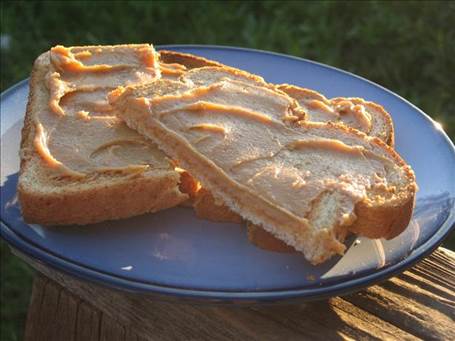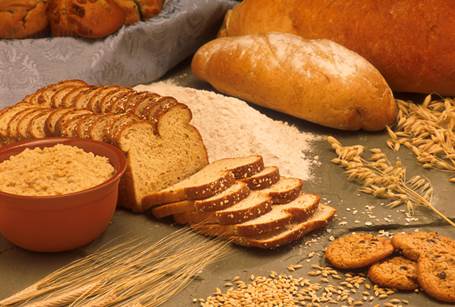What and how much should you eat and
drink for your pre-race breakfast?
If you’re like most runners, you spend the
final days before your half or full marathon feasting on high-carbohydrate
foods. But a good nutrition plan doesn’t end with that last plate of pasta the
night before your race. Just as important is your pre-race breakfast, which
helps restock the liver glycogen (or stored energy) that was depleted
overnight. “Liver glycogen keeps your blood-sugar level steady during
exercise,” says Jackie Berning, PhD, registered dietician and a university
sports nutrition and metabolism professor. Your morning meal provides fuel for
your brain, helping to sustain motivation and concentration during a long race.
But just how much should you eat on race morning to optimize your performance?
Probably more than you think.

What
and how much should you eat and drink for your pre-race breakfast?
The right stuff
The best pre-race breakfast consist mainly
of carbohydrates, since they’re digested most rapidly and are your body’s
preferred fuel source, says Penny Wilson, PhD, a registered dietician who works
with endurance athletes. Small amounts of protein will help stave off hunger
during the later kilometers. Limit or avoid fat and fiber; the former takes too
long to digest, while the latter can cause bloating and GI problems. “I
recommend foods like a white roll and peanut butter, oats with milk and dried
fruit, or yoghurt and toast,” says Wilson. Other good options include a banana
and high-carb energy bar, pancakes with syrup and strawberries, or even a bowl
or rice.
For runners who tend to feel queasy on race
morning, sticking with liquid carbs can help prevent GI problems while still
providing energy and hydration. Smoothies, juices, and sports drinks all pack
quick-digesting carbs that empty easily from your stomach, says Wilson.

Toasts
with peanut butter provides carbs and protein to fuel you up
Getting enough
While your usual toast and banana might
power you through a morning of meetings, they’re not enough to fuel you through
a half or full marathon. Research shows that consuming 3.3 to 4 grams of
carbohydrate per kilogram of body weight is ideal for improving performance,
says Berning. For a 680kilogram runner, that translates to 225 to 270 grams of
carbohydrate or about 4 200 kilojoules, which may sound like a lot just before
a hard effort. The key is to get that meal in earl – three to four hours
pre-race, to be exact, according to the American College of Sports Medicine.
That gives you enough time to digest, so your stomach will be fairly empty and
your muscles and liver totally fuelled. If you’re not sure you can stomach 4
200 kilojoules at once, you can divide them up into two smaller meals, says
Berning. In that case, eat 850 to 1700 kilojoules four hours before the start,
along with 350 to 600 millilitres of water or sports drink (giving you plenty
of time to hit the porta-loo). Between 90 minutes and two hours before the
start, eat most of the remaining carbs again, choosing easy to digest options.
Since many races start at 7am or earlier,
you’ll have to set you alarm for a very early wake-up to hit that four-hour
window. If that’s not realistic, you may choose to eat your entire pre-race
meal just two hours before the start. But because you’ll have less time to
digest, eat only 2grams or so of carbohydrate per kilogram of body weight
(around 150 grams, or 2500 kilojoules, for a 68-kilogram runner) – sticking
with foods and liquids you know are easy on your stomach. Since you’re
consuming less, you do risk running out of liver glycogen, which will cause
your blood sugar to plummet and may mean you hit the wall. So be vigilant about
fuelling early in the race (consuming 30 to 60 grams of carbs per hour) to keep
your energy levels high.

Between
90 minutes and two hours before the start, eat most of the remaining carbs
again, choosing easy to digest options
Finally, have you last 25 to 30 grams of
carbs 30 to 60 minutes prior to the start. This could be an energy gel or chews
(with 350 to 500 milliliters of water), or 500 milliliters of sports drink.
“This provides the last shot of fuel to hold you over until you get into the
rhythm of fuelling mid-race,” says Berning.
Berning also stresses that every runner has
different food and fluid tolerances, which means a plan that works for one
runner might spell GI disaster for another. That’s why it’s key that you
practice your pre-race meal strategy during training. “The stomach and gut need
to be trained to handle food before a long run,” says Berning. She suggests
trying different combinations to find the one that works best for you. And once
you find the perfect mix, stick with it. “Eat the exact same meal on race
morning that you practiced with in training,” says Wilson, “and you’ll be set.”